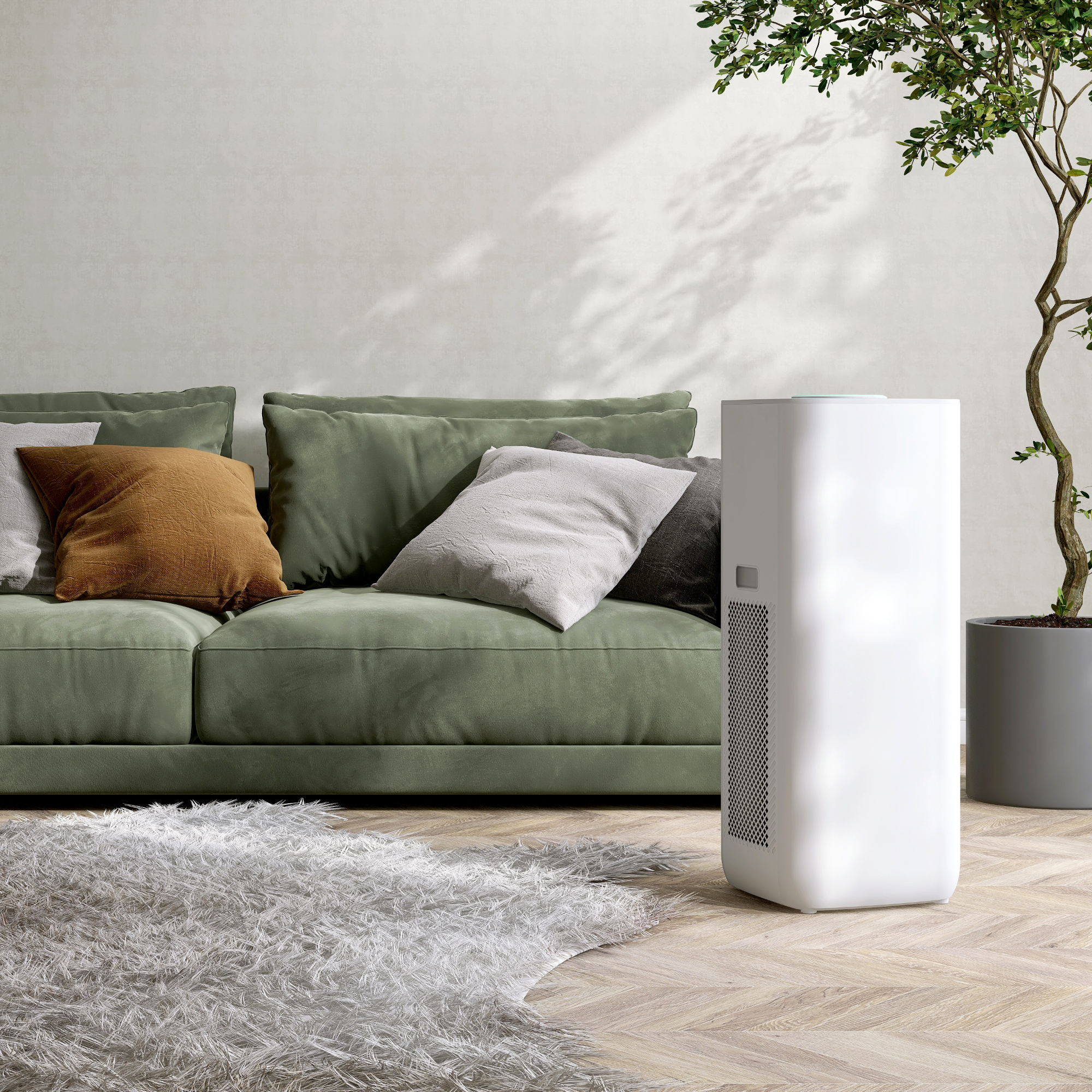
Air purifiers and air filters both share the same goal to remove pollutants and clean indoor air; however, they each work in different ways altogether and offer slightly different results.
When looking for solutions to improve the air quality inside your home, the best air purifiers are more often than not the first thing to spring to mind. Engineered to filter out all sorts of smaller particles like allergens, dust, pet dander, and more, these little plug and play devices have made it easier than ever to manage and monitor indoor air quality.
However, when looking at all the different ways to reduce allergens at home, you might have come across another air treatment solution: an air filter. These, on the other hand, are designed to remove larger pollutants and other airborne contaminants from the air.
So, what exactly is the difference between the two and which one is the better fit for your home?

Air purifier vs air filter: what is the difference?
Typically speaking, Chris Michael, Meaco's managing director explains that air filters are used more so in HVAC systems in commercial settings where there are more vents in place and ducting in the ceilings and walls, such as in shopping centres, leisure centres, hospitals, etc.
'In a home context, an air filter would be used inside an appliance of some kind that involves air treatment. For instance, an air purifier will use a HEPA air filter, a dehumidifier uses a dust filter, as does a vacuum cleaner, and so on,' continues Chris.
However, to keep things simple, we're focusing on broad air filters found in both domestic and commercial settings, as explained by Chris above.
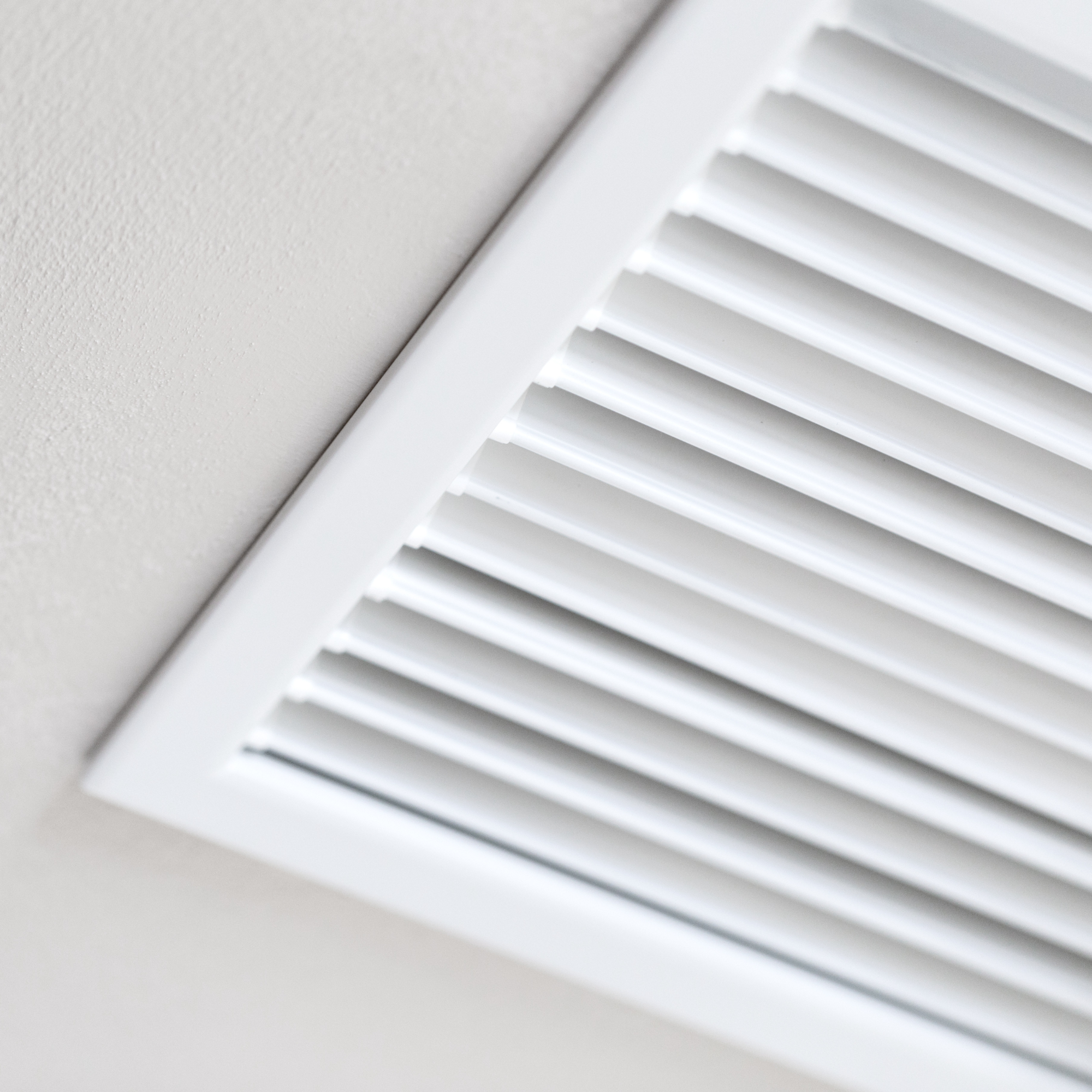
'An air filter is a device composed of porous materials that remove particulates, such as smoke, dust, and mould from the air. It is particularly used in homes and cars,' explains James Longley, managing director at Utility Bidder. 'The main function of an air filter in a home is to ensure the air circulates through your HVAC system and keeps your house clean.'
These filters trap unwanted elements that would otherwise float freely through the air. But, it's important to note that because air filters are more common in commercial settings where capturing bigger contaminants is most necessary, James notes that they're often not as effective against smaller particles such as pollen, dust, and dander.
In this case, this is where air purifiers become the choice most worth the investment if you want the most effective results.
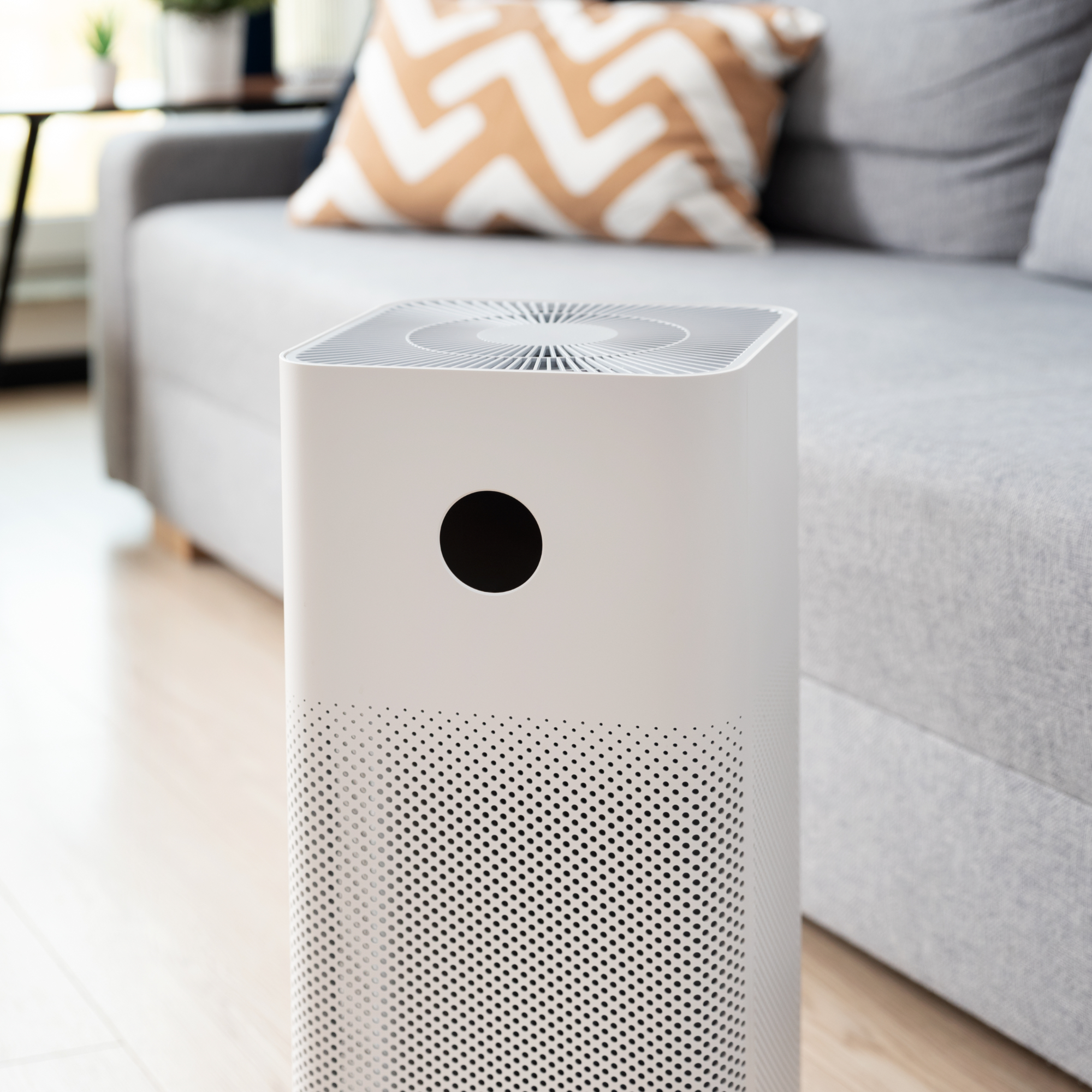
'Unlike standard air filters, air purifiers are standalone devices that use multiple methods to remove smaller particles, odours, and allergens,' explains Iain Wareham, head of product line at AEG. 'Air purifiers often use HEPA (High-Efficiency Particulate Air) filters, which are highly effective at capturing tiny particles like dust and pollen.'
Air purifiers with HEPA filters are the ideal option if you're looking for an appliance to remove dust from your home to the best capability, capturing up to 99.7% of airborne particles. Iain adds that some air purifiers even take it a step further to combine HEPA filtration with other forms of filtration.
These different types of air purifiers feature filters that include, but are not limited to: ionic filters in the form of ionizers, which release negatively charged ions into the air and active carbon filter purifiers which use activated carbon to absorb gases and odours.
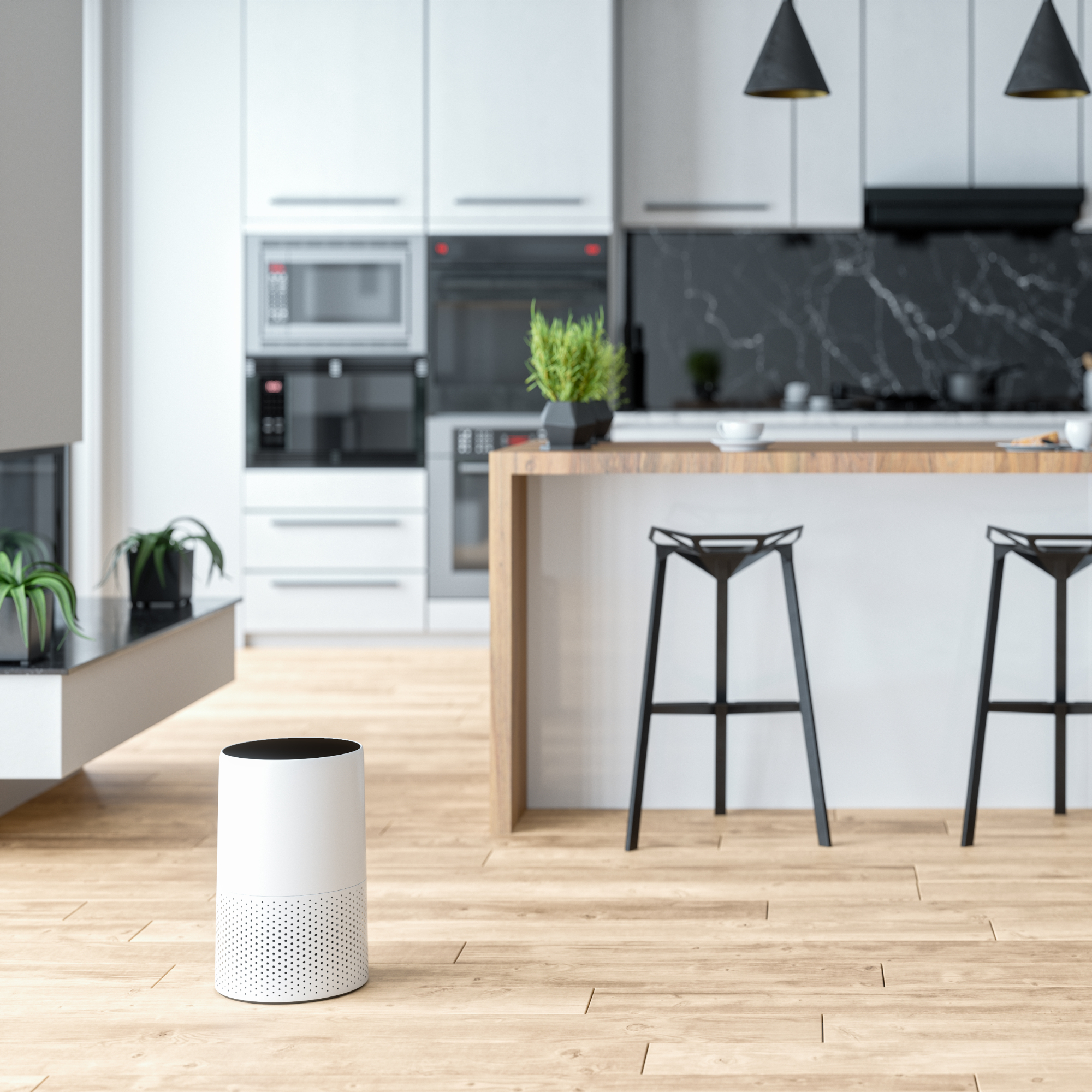
Which is better, an air filter or a purifier?
When debating between an air purifier or an air filter, there's no denying that air purifiers are the best choice for managing air quality inside a home over an air filter.
'Overall, most air purifiers are designed with a combination of technologies that allow them to provide a more comprehensive clean compared to standard air filters,' says Iain.
'Air filters can be low in cost and also disposable. However, they can get clogged quickly and may need to be replaced quickly. Air purifiers can be an expensive purchase, however, they can be very effective and do not need to replaced as regularly,' explains James.
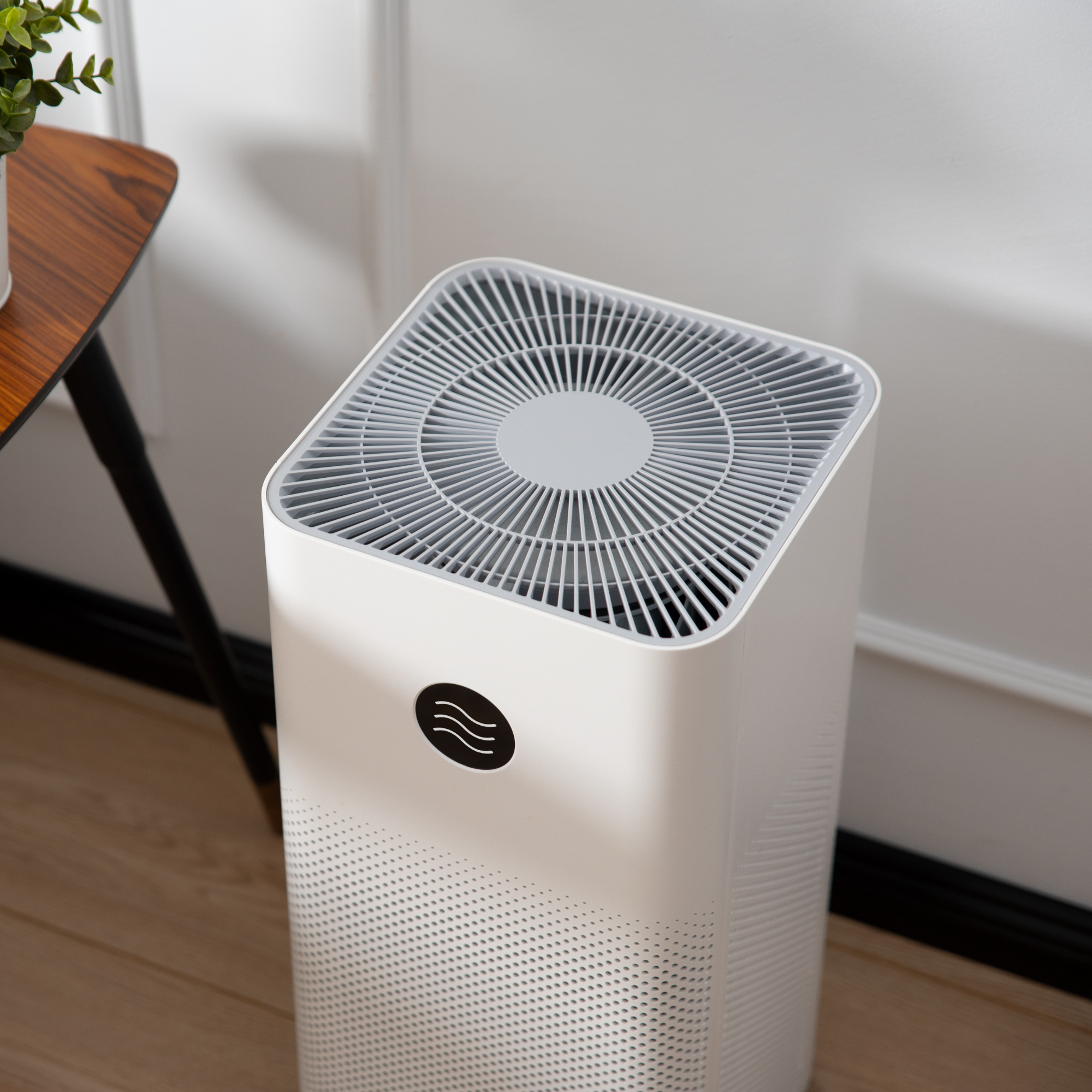
Shop our top-rated air purifiers
And, if you are worried about cost, there's no need to fret as you can purchase some fairly affordable air purifiers to get started on your journey to cleaner air. To help you, here are some of our favourite models we've tried and tested.
Among the models we've tested, we think this is the best air purifier you can buy – as long as you don't have a space over 48m² to filter. It combines first-class performance that filters out 99.97% of airborne particles down to 0.1 microns in size, a relatively affordable price tag, and stylish user-friendly design.
If you have small rooms and floor space is at a premium, then this model is compact enough to sit on a kitchen worktop, desk, or sideboard to help improve air quality. It performs well and its user-friendly design a joy to use. It also offers the Wi-Fi connectivity and voice-activated control, for added functionality.
Under £100, this is a decent buy if budget is your priority. Although it gets the job done, it's only suitable for spaces up to 38m² and lacks built-in air quality sensors – so there's no automatic mode available – and there's no Wi-Fi connectivity. However, if you're happy to sacrifice functionality for affordability, this model is a must.
All in all, not only are air purifiers easier to install and can be brought into any setting by simply being plugged in, but they're far more useful for tackling smaller airborne contaminants that our homes would be facing the most within day to day living – including pollen, dust, and pet dander. This, in turn, makes air purifiers a worthwhile investment if you have allergies or respiratory issues.
Generally speaking, our homes don't necessarily need air filters in the same way that commercial settings do, so improving your indoor air quality is best done through the use of an air purifier.







